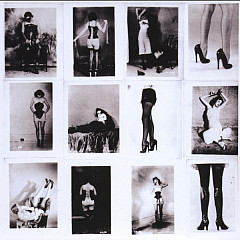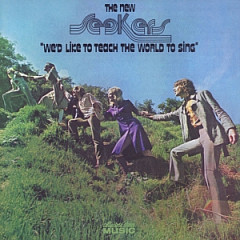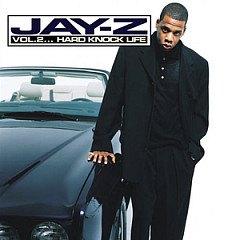 Songfacts (Greg Prato): How does the songwriting work primarily in Anti-Flag?
Songfacts (Greg Prato): How does the songwriting work primarily in Anti-Flag?Justin Sane: It works in many different ways. The way I prefer is when someone comes in with a bare bones idea - whether it's musically or lyrically or both. And then we banty it around for an hour or two. I find that to me it's when we're at our best. I think that's when our songs become the most creative lyrically and musically.
The song "Brandenburg Gate" from American Spring being one of those songs. It was a bare bones idea - the ideological perspective of the song came from one place, and musically it came from another place. Where we started and where we finished when we wrote the song was very different, and that was the result of it being a really collective experience of writing.
I just enjoy that collective experience of being in a band. I think every single person in our band has probably come in with a song and had a song written, and was like, "Here's the song," taught it to us, and the song was done. And that's great - that's really exciting, too. But part of the reason why I wanted to be in a band was to create something with other people. I enjoy the experience most when we start something with just a very big idea of where exactly it's going, and then we finish it together.
Songfacts: You mentioned the song "Brandenburg Gate." What was the lyrical inspiration for that?
Justin: In the end, the song is about the idea that despite the odds - no matter how big the odds may be - anything is achievable. The Brandenburg Gate was a symbol of the Cold War, and it was a symbol of division. It was like this barrier that no one would be able to overcome. But eventually, that wall came down, and all of a sudden, that gate was opened. People were actually able to be brought together. I think that's just one example of how when things seem impossible, there's always a possibility for hope and change when people are willing to fight for it.
Songfacts: What about "Without End," for which a "360-degree video" was recently filmed?
They felt like they could do a better job than most people, and I think they did. They really nailed it.
The song is the idea that quite often, the worst aspects of our society are put forward. A lot of times, those things never will go away, but it's important for us to speak out against those things, so that those things don't become normalized, so that racism, sexism, bigotry of all kinds, xenophobia, just because those things are constantly being pumped out into the world, that we don't let those things become normalized to a point where people think that they're OK.
Songfacts: "This is the End"?
Justin: "This is the End" was really a song that was more about the fact that people should be proud of who they are. Whether they're skinny or fat or black or white, it really does count what's on the inside versus what's on the outside. That was a message we were really trying to drive home to people, and remind people of.
Songfacts: "The Press Corpse"?
So, it's pretty interesting that we wrote "The Press Corpse" about ten years ago about the failure of the media to inform the public. And again, that issue is still there today - it's still out there. Of course, it continues now, when we've got all kinds of new mediums for media - whether it's Facebook or whatever it might be. And then there's all the fake news that's out there. "The Press Corpse" is a really apropos kind of song for today - even though it was written ten years ago.
Songfacts: "1 Trillion Dollar$"?
 Justin: It's trying to point out the fact that the United States government spends more money on the military - and I would call imperialism around the world - than every other country put together. The amount of money that the United States spends when you start to add up the Pentagon's budget, the CIA, the NSA, it's an astounding amount of money. It's asking the question, "Who is this benefiting?"
Justin: It's trying to point out the fact that the United States government spends more money on the military - and I would call imperialism around the world - than every other country put together. The amount of money that the United States spends when you start to add up the Pentagon's budget, the CIA, the NSA, it's an astounding amount of money. It's asking the question, "Who is this benefiting?"I would use Iraq as an example: When young men and women in the military are being sent in harm's way, what are they fighting for? Are they really fighting for our safety, or are they fighting for Halliburton and the oil companies? And that's a question that we're trying to ask: "Where is all this money going that is being spent on the military? Who is benefitting from that?"
When Iraq was invaded, did things really get better here in America? Not really. But I'll tell you what, a bunch of oil executives got very rich. So, it's a question that we're asking, and of course, who was hurt, whenever America goes on these imperial kind of military escapades. What the United States military and government succeeded in doing was creating a lot of new enemies in America - not keeping us safe as American citizens. And of course, dishing out a lot of pain and suffering for a lot of innocent people.
It's something that I think again, going back to the failure of the media, it's not something our media tackles very much. Our news is very sanitized, it's very cleansed. Ultimately, there's a monetary cost, there's also a human cost. And these are issues that we really need to look at as Americans.
December 2, 2016.
For more Anti-Flag, visit anti-flag.com.
Also see our interview with Anti-Flag drummer Pat Thetic.
More Songwriter Interviews











